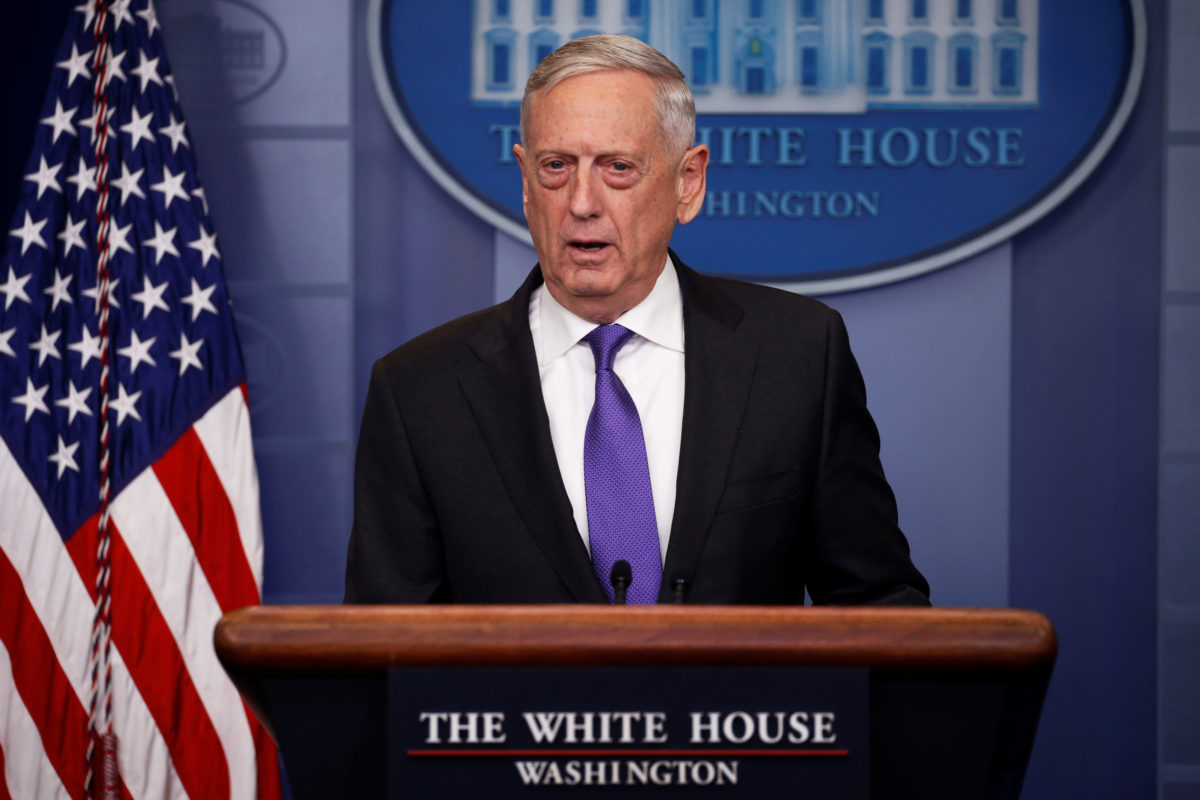

The nearly 850 immigrants currently serving in the military or waiting to start basic training won’t face deportation despite the ongoing federal wrangling over the fate of people who came to America illegally as children, Defense Secretary Jim Mattis said Thursday.
Mattis said he spoke with Homeland Security Secretary Kirstjen Nielsen earlier Thursday in what he described as a “confirming call” and was told that those military members and all veterans who were honorably discharged will be safe unless they have committed a serious felony or a judge had issued a specific deportation order for them.
President Donald Trump said in September that he was terminating the Deferred Action for Childhood Arrivals program, or DACA, which provided protection from deportation for people brought to America as children who are now living here illegally.
Previously, U.S. officials have said the military members’ DACA status wasn’t clear. But on Thursday, Mattis said flatly it’s not a problem.
“They will not be subject to any kind of deportation,” he told reporters. “In terms of the DACA situation … it’s clarified they are not in any kind of jeopardy.”
Mattis added that Homeland Security has been always willing to work with the Pentagon on DACA issues, and he said, “we would always stand by one of our people.”
All of those DACA service members came in under a small, special recruiting program called Military Accessions Vital to the National Interest, that seeks people with particularly critical skills. Many of them are fluent in key languages, including various Afghan and Iraqi dialects or perhaps Russian or Chinese.
Continued here.






